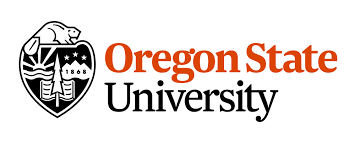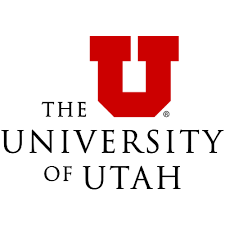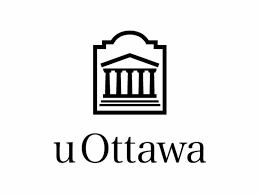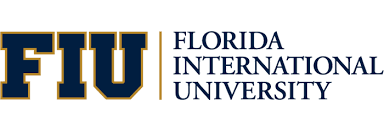With the best online bachelor’s in economics, you could earn your degree right after earning your high school diploma while working and gain highly transferable skills that employers love to see!
Did you know that the Bureau of Labor Statistics (BLS) has predicted a 13% rise in demand for economists in the next decade? The prospects for similar careers, including budget, financial, and market research analysts, are equally strong. With one of the best online bachelor’s degrees in economics, you can get your economics degree without sacrificing your busy schedule, and best of all, there’s no need to visit campus with an online bachelor’s degree! Prospective students should read on about online bachelor’s programs. You will find an economics degree that will be a good fit for you!
See Also: Financial Aid Tips for Online College
What will you learn with this online bachelor’s degree?
Bachelor’s degrees in economics typically last for four years and focus on how the economy operates within individual countries and across international borders. You’ll study how the manufacturing, distribution, and consumption of products and services impact on economies, in addition to how the decisions of senior business leaders can also play a part. You may study financial economics, international business, political science, business administration, or do economic research. Economics undergraduate students can go on to such lines of work in labor economics, as a financial analyst, economic development after these online bachelor’s degree programs.
See Also: Affordable Online Bachelor’s in Accounting
What kind of classes will you take for this best online bachelor?
Your courses for the economics programs may vary from one institution to the next, but typically you’ll cover some key subject areas present in most if not all economics degrees. These include courses for economics majors such as:
- Principles of Macroeconomics
- Principles of Microeconomics
- Economics of Developing Countries
- History of Economics
- Economic Theory
- Introductory Microeconomic Analysis
Some online economics bachelor’s degree programs are quite broad, offering you courses in areas like finance, accounting, marketing, human resources, and more.
What are the Best Economics Degrees?
Accredited Online College uses the most recent data from the Department of Education’s National Center for Education Statistics to complete their school search. Each program is scored individually. It’s then compared to all other universities offering that degree to determine the final score you see by each ranking. Accredited Online College considers the affordability, student-to-faculty ratio, and the number of programs offered on-campus and online. To learn more about how we conduct our school rankings, visit our methodology page.
#1. Liberty University
Liberty University offers a BSBA – Online Economics Degree Program that’s accredited by the ACBSP. In fact, it’s among the 3% of business schools in the world that hold such an accreditation. Courses last for 8 weeks and can be completed entirely online, with a total of 120 credits required for the economics degree program.
The curriculum from this online bachelor degree blends together courses that will give you the key communication, analysis, and research skills you’ll need as a business leader. Of course, economics students will also study a range of business topics including:
- business law
- business administration
- marketing
- management
You’ll also touch on international financial systems and other courses relating to business on a global scale.
Liberty University is a nonprofit university and aims to keep the cost of higher education affordable. As a result, their tuition rates haven’t risen for more than half a decade. Your typical undergraduate will pay tuition of around $390 per credit for full-time study, or $455 per credit hour for part-time programs.
#2. Colorado State University
The Bachelor of Arts in Economics at Colorado State University (CSU) has been ranked No. 11 among the best programs of its kind by U.S. News & World Report. You’ll explore how decisions are made by individuals, households, businesses, and other entities. You’ll also study factors that influence the economy and decision making, including gender, environment, and more.
Aside from your foundational coursework for this economics degree, you’ll also be expected to choose a minor as part of your degree plan. You can choose from a fairly wide range of topics including:
- Agricultural Business
- Anthropology
- Business Administration
- Gerontology
- Global and Environmental Sustainability
- Media Studies
- Political Science
- Sociology
Each of the minors from Colorado State University is available in the online study format, and your distance learning degree will lead to the same credentials as students who graduate from a traditional, campus-based program. Comprising a total of 120 credits, this program charges an undergraduate tuition rate of around $476 per credit.
#3. Utah State University
Utah State University’s distance learning campus, USU Online, offers an online economics degree that has been ranked among the best in the country by U.S. News & World Report on more than one occasion. This includes making the list of Best Online Programs and Best Online Programs for Veterans.
This bachelor of science economics program comprises 35 credit hours and draws together 13 courses that are relevant to the industry. You can choose from four emphasis options from Utah State University which include:
- Economic Theory
- Managerial Economics
- Pre-law Economics
- International Economics and Trade
You’ll be guided by a faculty with many years’ cumulative experience in the industry too.
Undergraduate tuition for this bachelor’s in economics online is estimated at around $9,521, though your total may vary depending on certain factors. Check out the Tuition and Aid page for more information from Utah State University, and bear in mind that students from outside of Utah typically pay a slightly higher rate of tuition.
#4. Oregon State University
Oregon State University’s Bachelor’s Degree in Economics is offered by a College of Liberal Arts that was ranked the best in the country for Best Online Liberal Arts Colleges. All of your courses will be taught online through Oregon State Ecampus, and you’ll choose from one of 4 start dates to begin your degree.
Through the coursework you’ll take for this online bachelor’s in economics, you will naturally gain a strong understanding of areas that include quantitative analysis, all forms of communication, research methods, and problem solving. You’ll also have the opportunity to choose an area of specialization from these economics courses:
- General Economics
- Managerial Economics
- Law, Economics, and Policy
In total, the economics online program comprises 180 credits, and you’ll pay undergraduate tuition of around $331 per credit, which is one of the lowest rates offered by Oregon State University. However, if you enroll in a hybrid program that includes on-site courses, you could pay a higher rate of tuition for those classes. Check out the tuition calculator for more accurate cost estimates.
Oregon State University also has an environmental economics degree as well.
#5. Washington State University
Washington State University’s Bachelor of Science in Economics recently featured in U.S. News & World Report’s list of the Best Online Programs. You’ll be able to complete all of your courses online under the guidance of a global campus that has been operating for more than 30 years. The student body at Washington State is mixed, with 6% being veterans, 3% active military, and the average student age coming in at around 31, so it’s an ideal place for working professionals.
Whether you intend on pursuing a master’s degree or furthering your career, you’ll benefit from strong grounding in skills such as critical thinking, communication, and advanced data analysis. Specialize further by choosing a concentration from subjects that include:
- Agribusiness
- Management
- Marketing and Analytics
- Supply Chain Management
Undergraduate tuition for part-time programs at Washington State is around $541.50 per credit hour for state residents. For non-residents, this rises to around $603.60 per credit hour. Full-time tuition is estimated at approximately $5,415 per semester for residents and $6,036 for non-residents. See the university’s Tuition and Fees page for more details.
#6. University of Utah
Under the College of Social and Behavioral Sciences at The University of Utah, you’ve got the option of enrolling in a Bachelor’s Degree in Economics. After completing your core courses, including those such as Principles of Microeconomics, Principles of Macroeconomics, and Mathematics for Economists, you’ll be able to tailor your studies with a focus area.
Potential areas of focus include Econometrics, Economic History, and History of Economic Thought, and you’ll also take 4 upper-division electives. All courses in this program are delivered online, though you’ll still engage directly with faculty and peers thanks to synchronous online learning, online discussions, and online office hours.
To calculate your approximate costs, you can use the University of Utah Tuition Calculator. There’s no premium tuition rate for students from out of state; all students pay the same tuition for online programs, regardless of residency. However, bear in mind that as an online student, you’ll pay $60 in additional fees for each course.
#7. Ottawa University
At Ottawa University, you can gain your Bachelor of Arts in Business Economics, which has a heavy emphasis on the decisions made by business leaders in the industry. You’ll learn from entrepreneurs, managers, executives, and more, and you’ll understand the impact that their decisions have had on society.
Students enrolled in this program can choose from one of three BBE concentrations to further their expertise. You’ll have the choice between:
- Finance Concentration
- Human Resources Concentration
- Leadership and Management Concentration
Of course, you’ll also strengthen other key skills, including critical thinking, research, and communications.
Undergraduate tuition for online bachelor’s degrees taken at Ottawa University is around $499 per credit hour, with a few exceptions. There’s also a $50 application fee and $195 conferral fee, and you’ll pay around $150 per term for the use of the university’s elearning system and technology.
#8. Florida International University
Florida International University (FIU) offers an Online Bachelor of Arts in Economics, which comprises 120 credits. Start dates are available throughout the fall, spring, and summer semesters, and you’ll benefit from a program that was ranked among the Best Online Bachelor’s in Economics by Learn.org.
As with similar degree programs, your core courses will include basic introductions to economics including:
- Principles of Macroeconomics
- Principles of Microeconomics
- Introduction to Statistics
Upon applying for the program, you’ll need to submit your official SAT or ACT scores alongside your official high school transcripts and the $50 fee.
The tuition rate for this program depends on residency, with state residents paying around $228.81 per credit hour, excluding fees. Out-of-state students pay around $345.87 without fees, which is still highly competitive compared to similar institutions and programs. You can consult the university’s tuition calculator for more accurate estimates of your final cost of attendance.
#9. Fort Hays State University
At Fort State Hays University, you can enroll in a Bachelor of Business Administration Degree, which includes a major in International Business and Economics. With this program, you’ll gain broad exposure to a range of business areas, including:
- economics
- accounting and finance
- management
- marketing
Regardless of concentration, all students from Fort Hays State University take the same core courses, which includes foundational study in accounting, business communication, managerial finance, business law, management principles, and more. Your choice of concentration will see you specializing further, with courses such as:
- Insurance Planning and Bank Management
- Leadership and Team Dynamics
- Project Management
Typical undergraduate tuition and fees come to around $5,443.80 for a Kansas or regional resident, or $15,890.40 for a non-resident. There are further rates and details on the university’s website, and it’s worth reading to understand whether your state qualifies for a reduced rate and what rate you’ll be paying.
#10. University of West Georgia
The University of West Georgia (UWG) offers a Bachelor of Business Administration with a Major in Economics. The curriculum is intended for students who are interested in working in a government agency or in business. As such, you’ll gain strong communication and analysis skills, while understanding how businesses across the nation and world operate.
Required courses in this curriculum will cover macroeconomics, forecasting, economic anthropology, consumer economics, and more. You’ll also take a range of upper-division courses that could include:
- Health Economics
- International Economics
- Money and Banking
- Public Finance
You can download a full program brochure for a complete course list.
As an online undergraduate student, you’ll typically pay around $182.13 per credit hour as a state resident. The exception is for out-of-state students who take a blend of campus-based and online courses. In this case, you’ll pay around $642.73 per credit hour. If you need help with the cost of your education, check out the university’s information on scholarships and other financial aid.
Other Notable Online Economics Degrees:
- Eastern Oregon University- BS./BA. Economics
- Penn State World Campus- Bachelor of Science in Economics
- Arizona State University- Online Bachelor of Science in Economics
Frequently Asked Questions
Can you study economics online?
All of the universities listed above offer bachelor’s degrees in economics that can be completed online, and none of these programs have a campus requirement. What’s more, it’s fairly uncommon to see an economics degree with a mandatory field experience, though they do exist. Some programs may also give you a choice without making it a program requirement.
That said, if you have the opportunity to complete a placement within an organization that aligns with your career goals, then it’s worth considering. Having practical experience that you can showcase on your resume can help give you an edge when you’re competing with other graduates for a role. Of course, depending on your reasons for online study, it might not be feasible to fit this into your schedule.
If you’re interested, research the kind of opportunities offered by each university. Some institutions will help you to find a placement that’s close to home, which should reduce the commute and potentially help you to fit this into your professional schedule.
What can I do with a bachelor’s in economics?
A bachelor’s degree in economics will prepare students a range of skills that are highly transferable into other industries and professions. You’ll strengthen your communication, critical thinking, analytical, research, and problem solving skills, among others. These are skills that employers need across industries that include business, law, marketing, human resources, and more.
Of course, many graduates of economics degrees will pursue the career path of the economist. According to the Bureau of Labor Statistics (BLS), there’s a predicted 13% rise in demand for economists over the next decade. That said, without a master’s degree, you might struggle to land such a position outside of a government agency, where requirements are typically less stringent.
Other potential careers that are popular among economics graduates include:
- budget analyst
- market research analyst
- operations research analyst
- financial analyst
Many of the degrees listed above allow you to choose concentrations or areas of emphasis, so if you have your mind set on a particular career, you can start choosing courses that best align with your goals.
How much can I earn with a bachelor’s degree in economics?
Should you choose to pursue an economist role, you’ll be glad to hear that the BLS recorded a median economist pay of around $108,350 in 2020, with the highest 10 percent of employees in this role taking home $200,000 or more. The highest-paid economist roles were in finance and insurance, while the lowest-paid roles were in state government agencies.
The BLS also published salary information for other roles, and budget analysts made a median salary of around $78,970 in 2020. Market research analysts earned slightly less, at around $65,810, while operations research analysts made around $86,200 and financial analysts $83,660. Mathematicians and statisticians earned the highest among these employees, making a median of around $93,290.
What are the entry requirements for a degree in economics?
Colleges and universities tend to vary across the board in their entrance requirements for economics degrees. While one university might require prerequisite courses in economics and calculus, another might ask that you’ve studied statistics. This is why it’s a good idea to start planning for your career early, though we appreciate that it’s not always possible.
In terms of being admitted to a program, you’ll normally need to submit proof of graduation from high school in the form of your diploma and certificate of graduation. You may also need to submit official high school or GED transcripts, especially where there’s a minimum GPA requirement.
If your mother tongue is not English, then as an international student, you’ll need to prove completion of either the TOEFL or IELTS examination with an acceptable score, which can vary from one institution to the next. These are complex examinations that require a lot of study and preparation, regardless of your language ability.
It’s worth mentioning that some programs also have prerequisite courses in subjects including calculus and statistics. Depending on your past studies, you may also need to complete introductory courses in specific subjects to fill any knowledge gaps that you may have, as some programs offer a more extensive level of foundation study than others.
Federal financial aid for the undergraduate program should be sought out from the school’s own enrollment counselor.
If you’re interested in pursuing higher education, then you should check out the 35 Best Master’s in Economics and the 35 Best Bachelor’s in Accounting!











